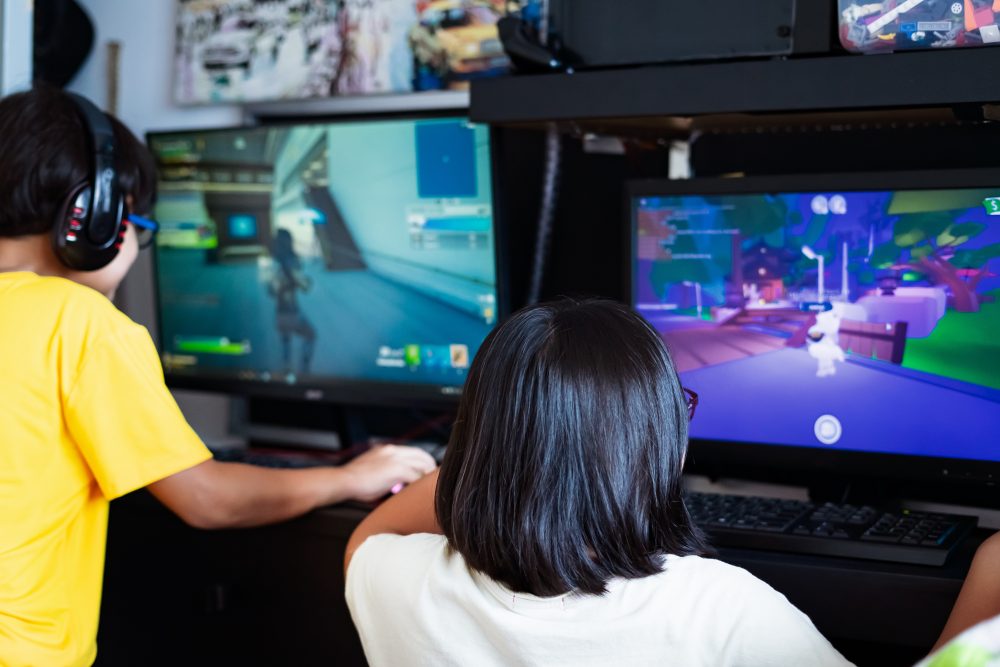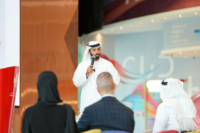With UAE and Saudi outlining clear national visions to advance game development and esports, a growing number of schools are exploring ways to integrate gaming into their curricula
Dubai, Nov 13, 2024: Schools across the GCC are actively exploring ways to integrate game-based learning, with teachers and school leaders increasingly viewing it positively. At the same time, game developers are integrating advanced AI and VR solutions to promote technology-enabled learning among students.
Curriculum planners too are exploring ways to incorporate game-based learning into their modules. Several recent studies have shown that gamification and play-based learning yield significantly better results than traditional teaching methods.
Artificial intelligence is at the core of gaming, and with the advent of VR tools it is going to create a radical change in the education sector, says Hara Two Abdul Rasheed, Founder and CEO, Formula Entrepreneur Management Training LLC, a Dubai-based game developer, which trains students through its games.
“The current buzz of AI is not just going to reflect in education but going to highly and positively impact the future of our children,” says Rasheed.

Mayank Dhingra, Senior Education Business Leader at HP observes that with esports now included in the Olympics and the region set to host the Esports Olympics for the next 12 years, interest in esports and gaming has increased sharply. “With both UAE and Saudi Arabia articulating clear national visions on growing game development and esports within the respective countries, it has further bolstered the focus on the sector,” he says.
“A very high percentage of schools in GCC are exploring ways of bringing gaming into their frameworks,” says Dhingra.
Gaming is now a universal language and is not bound by curricula or geo restrictions. “Many educational institutions now see this as an alternative and more effective way of creating future skills in programming and design, which is allowing for adoption within curricula and/or ECAs,” he says, adding that government and intergovernmental agencies are also finding this an effective way of scaling skills at pace.
“Gamification has already started creating ripples in GCC schools,” says Rasheed.
Teachers in the region, he argues, are very much adaptive to new tech in education. “Education games are also something many wish to try out and benefit their students. At present though very few schools have started adapting to software-based gamification in teaching; many activity-based games are effectively tried out,” he says.

“Teachers in the GCC are increasingly open to game-based learning, especially as they see the engagement it brings among students,” says Mark Ryan, PYP Coordinator, GEMS World Academy – Abu Dhabi.
According to him, challenges include a lack of training, limited time to integrate new tools and occasionally skepticism about the educational value of certain games (from parents and educators).
While there is quality content available, Ryan points out that it often lacks cultural relevance to the GCC. “Improvement could come from creating locally relevant content and offering more customisation options to align with specific learning goals. Minecraft is an excellent example of a game that lends itself easily to adaptation to fit the needs of a community,” he says.
Rasheed also points out that most games currently used are quite basic and don’t fully capture the essence of competitive gaming that could engage children more effectively.
According to him, British curriculum is among those most actively adopting gamification. “However, there are few newly developed curricula that use gaming techniques either as a tool or a platform,” he adds.
As Dhingra notes, game-based learning or gamification of pedagogy is different from gaming and game development.
“Teachers in general are more favourable to ‘learning gamification’ than ‘learning through gaming’. Many pedagogical software today incorporate game-based learning,” he says pointing out that HP’s Classeasy LMS motivates and rewards student effort on the platform, leading to better learning outcomes in the long run.
Key obstacles
According to him, parental and sometimes educators’ negative perception of gaming can be an early obstacle but one that can be overcome with factual information and evidence. “As with any technology adoption, a balanced approach, implementation of necessary safety guardrails and a healthy dose of pragmatism and adaptability are essential tools,” he adds.

Rasheed too points out that the main hindrance is the lack of awareness among children and parents about the positives of gamification. “Still many parents and teachers feel that gamification is just the fun part and not something that can be an education tool same as using an education software,” he says.
To overcome this, he argues that there is a need to introduce a series of workshops and awareness campaigns in schools and communities showcasing gamification products and their positive impact on a child’s career and future.
“A nationwide campaign to have an education games-based competition by government or schools can create a bigger impact, which I am sure will happen soon with the great vision of our rulers,” he adds.
HP, for example, has set up gaming labs for both K12 and higher education institutions across UAE, Saudi and Oman. “Our gaming and esports courses have been adopted by learners in all the GCC countries, and in Saudi Arabia we have received micro-degree credential status by the MICT and NeLC,” says Dhingra.
Schools are also playing an active role in this transformation by exploring and embracing new technologies. “At GEMS World Academy – Abu Dhabi we are exploring immersive experiences through VR, collaborative problem-solving in virtual worlds (Minecraft education) and the use of AI to personalise and gamify learning experiences,” says Ryan.
“Esports is also on the rise. We just launched our first MYP esports league, providing students with opportunities to develop teamwork and critical thinking skills,” he adds.
Meanwhile, budget remains a concern too. As Rasheed notes, finding a reliable game provider and transitioning to gamified education is not always cheap. “There are ways to reduce the cost; by thousands of students adapting into gaming, the game itself will turn affordable,” he says.
“When more schools use it, it will definitely be less costly. The best way to help our future generation adapt into gamification quickly is through a collective effort by schools or gamified education providers,” he adds.
As Ryan points out that budget constraints can be a challenge but, “schools like ours are investing in gamification because we recognise its long-term benefits for student engagement and learning outcomes,” he says, adding that GEMS Education is developing partnerships with companies such as HP to help make game-based learning more accessible for its students across the region.
As Dhingra points out, embracing game-based learning is more than a trend; it’s a commitment to engaging students in an immersive way. By investing in relevant, adaptable content, we’re empowering educators in the GCC to transform classrooms into environments where learning is not only effective but also exhilarating.
Commenting on budget constraints, Dhingra says, “Yes, since these elements are not part of the traditional budgeting line items, there will be a learning and adoption curve within fiscal context that will soon need to catch up to the latest trends.”
According to him, HP’s Gaming Garage professional certificate courses on esports management and game development have overcome the entry barrier by offering the content for free. This initiative has enabled students from a staggering 187 countries to enroll into the programme in less than a year of its launch.








